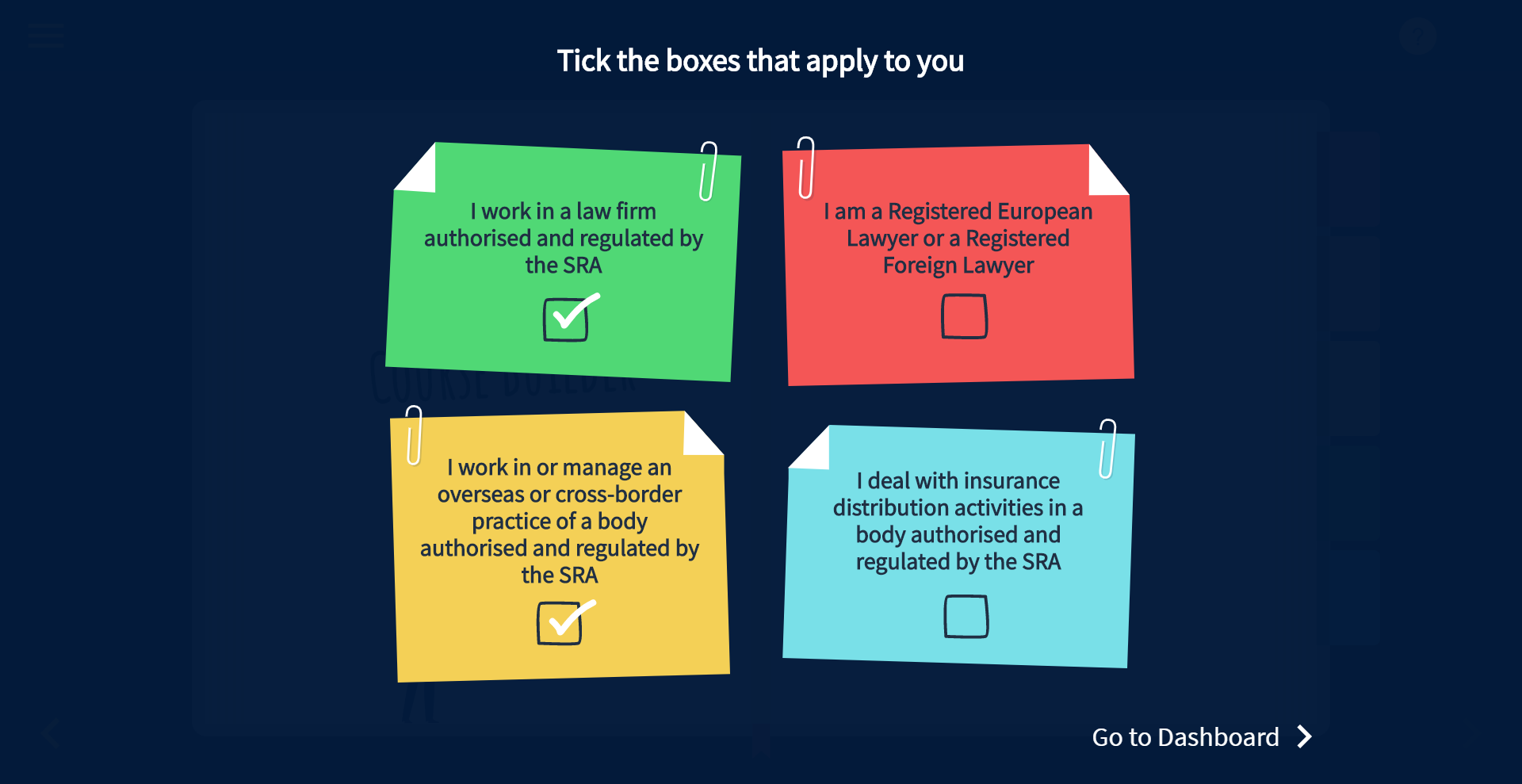In November 2016, the Solicitors Regulation Authority (SRA) abandoned its 16 hour minimum training requirement in favour of solicitors declaring themselves to be competent. At the time, mixed feelings were expressed by solicitors, including: “Will less training be carried out if there is no minimum requirement? How will I know what training to do? How should I record the activities I take part in and maintain an accurate learning record? What do I need to do in order to declare myself competent to the SRA?”. Consumers and those who protect them asked: “How can I know that the solicitor I select is well trained and competent to do the work that I require them to do? Will they do the best job possible for me?”.
What is continuing competence?
Under the SRA’s continuing competence framework, solicitors are expected to reflect on their practice and identify areas for improvement. They should take appropriate steps to address any gaps in their knowledge or skills through various means, such as training, self-study, or participation in relevant professional activities. The SRA does not prescribe a specific number of hours or types of activities that solicitors must complete. Instead, it emphasises the importance of solicitors taking a proactive and reflective approach to their learning and development.
Solicitors are encouraged to keep a record of their continuing competence activities, demonstrating their engagement in ongoing learning. These records may be subject to review by the SRA during the regulatory process. The SRA expects solicitors to maintain and enhance their competence continually, ensuring that they stay up to date with changes in the law, legal practice, and professional standards.
Is the new approach to CPD working?
Four years on and the organisations that regulate solicitors are questioning whether, in fact, the easing of mandatory CPD was actually the correct choice. The process started with the Legal Services Board (LSB), the oversight regulator that governs the SRA. They pointed out that consumers have no certainty when selecting their lawyer as to whether that lawyer is up to date with their training and competence. Drawing a parallel with pilots and doctors, the LSB posited that passengers have confidence in pilots by knowing that they have undergone recent mandatory training, and patients trust doctors because their regulatory body, the GMC, requires regular revalidation.
This call to action by the LSB led to the Legal Services Consumer Panel (LSCP) to call for evidence-based confirmation that the current arrangements are in the best interests of consumers. LSCP suggestions include spot checks on lawyers’ knowledge and mystery shopping solicitors for quality. One isolated example given by the LSB is that the number of applications returned to solicitors by the Land Registry due to errors has risen since Continuing Competency was introduced.
Is continuing competence continuing?
The SRA has responded by accepting that a review of their now 5 year old competence statement is due. A thematic review is tabled to take place during 2020/21 but no specific timetable has been set. The SRA will consider the data that they have about competency and assess whether the system needs to be enhanced or updated. They admit that they have no plans to return to a mandatory system but haven’t ruled out more checking, enforcement, and intervention. A concern already raised is whether any forced improvements to standards and competence will inhibit access to the profession, another topic which the SRA is heavily engaged in.
Solicitors, especially those involved in compliance, risk and learning and development, should ask themselves the following questions:
- How do you know that your solicitors have carried out sufficient training?
- Are your training records up to date if the regulator were to call for them?
- Would you survive a mystery shopping attempt?
- Are you able to demonstrate competence in the areas that you practice?
- Where are you focussing your training efforts and why?
SRA Standards and Regulations training

Our SRA Standards and Regulations training courses are written in clear, plain language. The training includes many examples and scenarios taken directly from the Solicitors Disciplinary Tribunal (SDT) decisions. VinciWorks’ SRA training suite includes a course for all staff and specialised courses for accounts staff, partners, managers and compliance officers.
Our 10-minute course, SRA Standards and Regulations: What’s Changed?, provides a brief overview highlighting the key changes of the SRA’s new regime. Further, our short continuing competence module will give a brief overview of what the current approach means.













